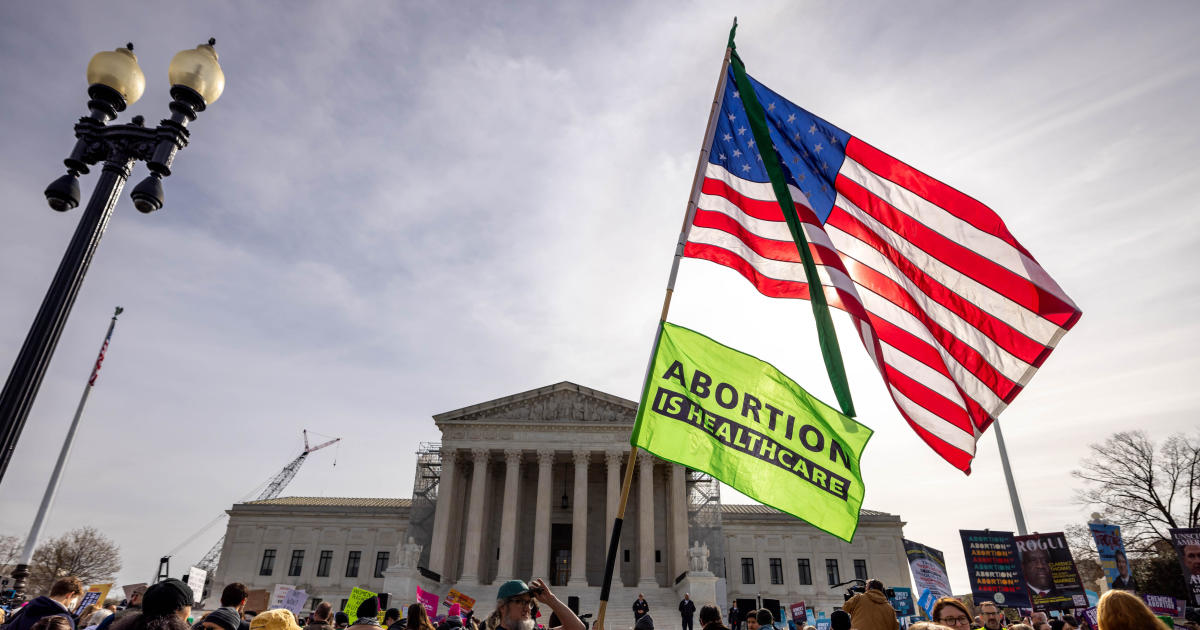Supreme Court rejects cases challenging qualified immunity for police officers
Washington — The Supreme Court on Monday again turned away a slew of cases revisiting the controversial legal doctrine that shields law enforcement and government officials from being sued for actions taken in an official capacity.
The decision by the high court comes against the backdrop of protests that have erupted across the U.S. in response to the death of George Floyd, 46, and other unarmed African Americans at the hands of law enforcement. Minneapolis police officer Derek Chauvin pressed his knee to Floyd's neck for several minutes as he struggled to breath, and three other officers looked on. Chauvin has since been fired and arrested and charged with second-degree murder.
The Supreme Court has for weeks been weighing numerous cases involving qualified immunity, the legal doctrine that protects government officials from lawsuits stemming from conduct on the job unless they violate "clearly established" constitutional rights. But qualified immunity for police officers, in particular, has come under heightened scrutiny in recent years, as it makes it more difficult for victims to hold law enforcement accountable for use of excessive force.
Civil rights groups, lawmakers and legal scholars have urged the Supreme Court to narrow the legal doctrine, warning it allows police to act with impunity.
One of the cases the Supreme Court declined to review involved a Georgia police officer who shot a 10-year-old boy in the leg during pursuit of an unarmed suspect. The boy and five other children were playing outside when officers ordered them to lie on the ground as they pursued the suspect into their yard. One of the officers, Michael Vickers, fired twice at the family's pet dog, which was also in the yard, missing both times. But the second time he shot at the dog, he hit the young boy in the back of the knee. The boy's mom, Amy Corbitt, sued, and Vickers asserted qualified immunity.
The 11th U.S. Circuit Court of Appeals sided with Vickers, ruling he is entitled to qualified immunity.
Another legal battle involved Shaniz West, an Idaho woman who sued after police fired tear-gas grenades into her house during a search for her ex-boyfriend, who they believed was inside. But West had given police permission to enter her home and handed officers the keys to get inside.
A divided panel of the 9th U.S. Circuit Court of Appeals ruled the officers were entitled to qualified immunity.
A third case involved a Tennessee man, Alexander Baxter, who was bitten in the armpit by a police dog after surrendering to Nashville police who responded to a report of a residential burglary. The dog was released by one of the officers, Spencer Harris, after Baxter sat on the ground and raised his hands in surrender, according to the ACLU's petition with the Supreme Court. In that case, Justice Clarence Thomas dissented from the denial of certiorari, writing that "I continue to have strong doubts about our §1983 qualified immunity doctrine" as it "appears to stray from the statutory text."
Qualified immunity has found critics across the ideological spectrum, including on the Supreme Court, where Thomas, the court's most conservative justice, and Sonia Sotomayor, one of its most liberal members, have both warned against the broad leeway it gives to government officials.
In 2017, Thomas urged the court to reconsider its qualified immunity jurisprudence when it found an appropriate vehicle to do so, writing, "until we shift the focus of our inquiry to whether immunity existed at common law, we will continue to substitute our own policy preferences for the mandates of Congress." One year later, in 2018, Sotomayor wrote that a Supreme Court decision in favor of a Tucson, Arizona, police officer "tells officers that they can shoot first and think later, and it tells the public that palpably unreasonable conduct will go unpunished."
The Supreme Court created qualified immunity decades ago, but in recent years, it has turned away other opportunities to reconsider the legal shield. A Reuters investigation published in May found police have won 57% of cases where they asserted qualified immunity from 2017 to 2019.
While the high court rebuffed the chance to reconsider the doctrine, lawmakers on Capitol Hill have called for limiting qualified immunity amid the civil unrest sparked by Floyd's death in late May.
A sweeping police reform package introduced by House Democrats last week reforms the doctrine so victims can more easily recover damages when their constitutional rights are violated by police, and GOP Senator Mike Braun of Indiana said last week he is considering pushing for an end to qualified immunity.
But legislation restricting the doctrine could face an uphill battle. White House press secretary Kayleigh McEnany told reporters last week that reducing immunity for police who violate civil rights is a "nonstarter" for President Trump. Republican Senator Tim Scott of South Carolina, who is leading Republicans' efforts on police reform, said on "Face the Nation" on Sunday that limiting qualified immunity would be a "poison pill" for legislation.



